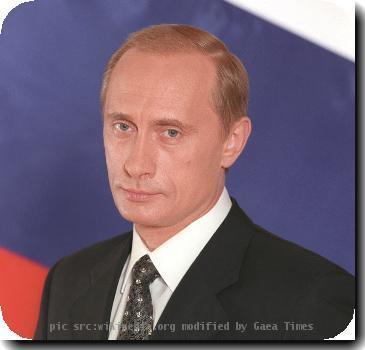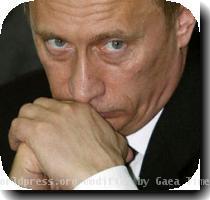Yegor Gaidar, the architect of Russia’s grand transition to a free market, dies at 53
By David Nowak, APWednesday, December 16, 2009
Gaidar, Russia’s free-market architect, dies at 53
MOSCOW — Yegor Gaidar, who oversaw Russia’s painful economic transition from communism to the free market in the 1990s, died Wednesday, an aide said. He was 53.
Gaidar died unexpectedly of a blood clot at his Moscow-area home while he was working on a book early in the morning, his aide Valery Natarov told The Associated Press.
Gaidar — who served under Boris Yeltsin and as acting prime minister for six months in 1992 — was loathed by ordinary Russians who saw their savings wiped out by the inflation that followed his sudden price liberalization that year. But he was praised by others for taking it upon himself to make painful but necessary changes to fix a dysfunctional communist economy.
He oversaw the so-called shock therapy reforms that opened prices that formerly were set by the state to the free market. That meant grocery stores restocked immediately but that hyperinflation put most goods out of reach of consumers.
Gaidar, a graduate of the economics department of Moscow State University, was among a group of young liberals in the 1990s who have been cast as the architects of that decade’s economic and political chaos by Russia’s current leadership.
Former associates acknowledged Gaidar was loathed by ordinary Russians who lost everything during the economic liberalization, but they praised him for avoiding a greater catastrophe.
“He stood before the choice of civil war or painful reforms,” Boris Nemtsov, a former deputy prime minister under Yeltsin, told the Ekho Moskvy radio station. “He gave his life to avert civil war.”
Anatoly Chubais, Gaidar’s close associate in the reforms and a former deputy prime minister, described Gaidar in his blog as a friend and “an intellectual and moral leader for all of us.”
“He was a great man,” Chubais said. “Russia is very lucky to have had him in one of the most difficult times of its history. … He saved the country from hunger, civil war and collapse.”
Russian Prime Minister Vladimir Putin posted a Web site statement calling the death “a heavy loss for Russia, for us all.”
“We have lost a genuine citizen and patriot, a strong spirited person, a talented scientist, writer and expert. … He didn’t dodge responsibility and ‘took the punch’ in the most challenging situations with honor and courage,” the statement said.
President Dmitry Medvedev issued a statement calling Gaidar a “daring, honest and decisive” economist who “evoked respect among his supporters and opponents.”
Former Soviet President Mikhail Gorbachev, who opposed Gaidar’s reforms, said in comments carried by the ITAR-Tass news agency that he “personally grieves” Gaidar’s death. But he also pointed to what he called the shortcomings of Gaidar’s policies.
“Gaidar went into politics with many hopes, but his plan was to (resolve all the problems) in one shot,” Gorbachev said.
In one of his final interviews, Gaidar spoke of his time in office.
“One of the main achievements in 1991-1993 was that we managed to avoid civil war,” he was quoted as saying by Novaya Gazeta, in an interview published Nov. 20.
Vladimir Zhirinovsky, the leader of the right-wing Liberal Democratic Party, and a contemporary of Gaidar as a State Duma deputy, expressed his admiration Wednesday.
“He had courage to stand up for his position, which he never concealed. He was a man of great erudition and could answer any question. He made a great contribution to Russia’s economic science. I am very sorry that such people die so young,” Zhirinovsky said.
Gaidar fell ill on a book promotion trip to Ireland in November 2006, a few days after the poisoning death of former Russian security agent Alexander Litvinenko. Gaidar said he feared he had been poisoned, too, and pointed the finger at unidentified enemies of the Kremlin.
Gaidar was part of a renowned family.
His grandfather, Arkady, was a Red Army hero of the Bolshevik Revolution who turned to writing children’s books that remain popular today. His father, Timur, was a military reporter with the Soviet Pravda newspaper. His daughter, Maria, is a liberal campaigner who has been arrested several times for taking part in anti-government rallies and now serves as an aide to Nikita Belykh, a regional governor. Gaidar is survived by his wife, three sons and his daughter, Maria.
A public memorial service was scheduled for Saturday at a funeral hall in a Moscow clinic.
Associated Press writers Lynn Berry and Nataliya Vasilyeva contributed to this report.

